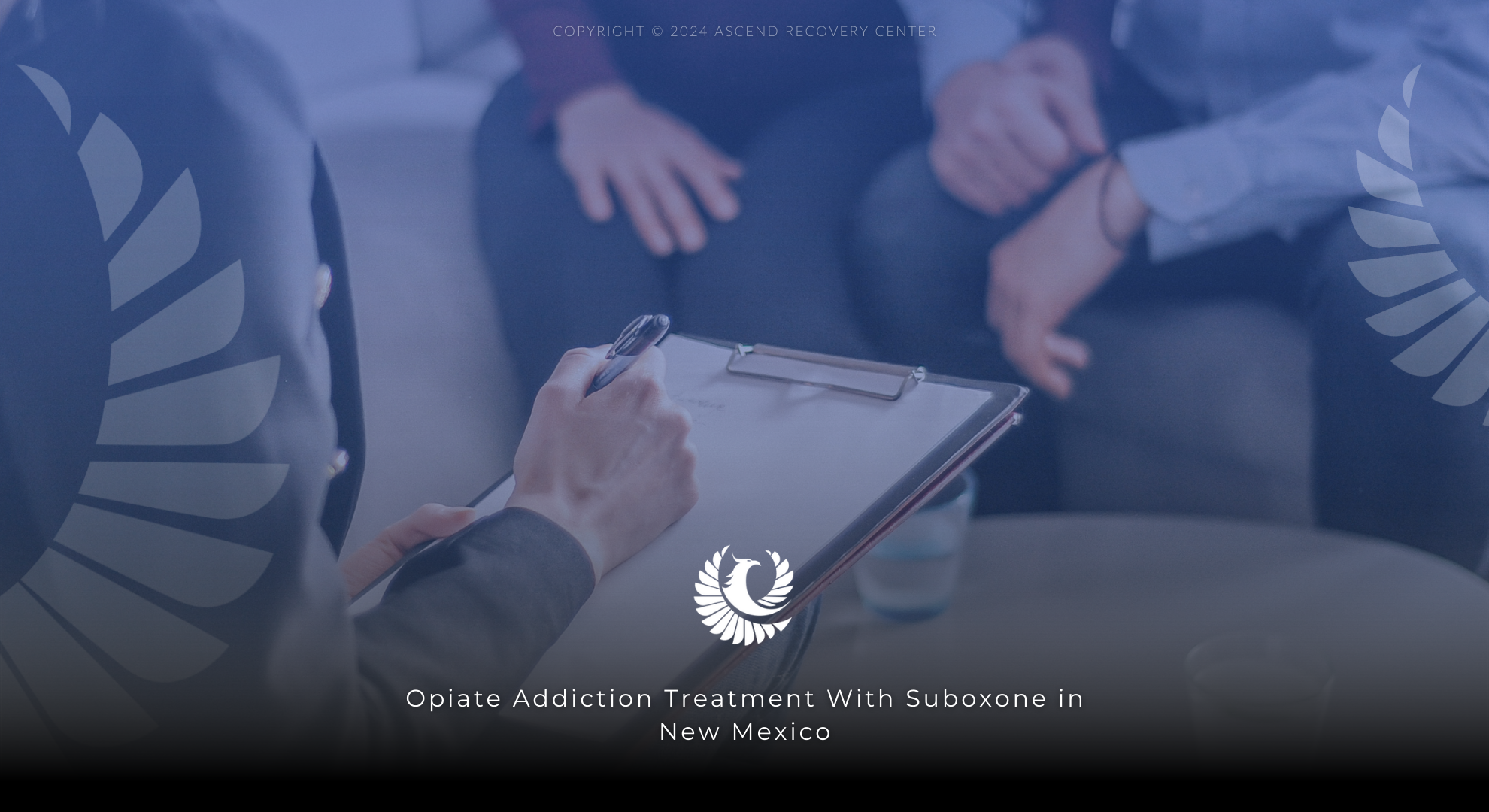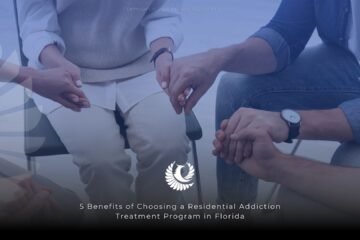If you or someone you love are struggling with opioid addiction, you may understand just how difficult it can be to get sober and stay sober. Opioid use disorder has some of the highest rates of relapse, however, there are effective, evidence-based treatments available that can help individuals maintain their sobriety. One approach is known as medication-assisted treatment or MAT.
Medication-assisted treatment (MAT) is a comprehensive, whole-person approach to recovery that combines medications like Suboxone with counseling and behavioral therapy. The idea is that medications can alleviate withdrawal symptoms and cravings while individuals do the work in therapy to develop the coping skills and gain the knowledge they need to stay sober.
Suboxone treatment may be right for you if you struggle with opioid addiction and are committed to following an intensive treatment plan. To learn more about Suboxone treatment programs in Albuquerque, NM, please reach out to Ascend Recovery Centers today and speak with an addiction specialist.
What is Suboxone?
Suboxone is a prescription medication that was approved by the U.S. Food and Drug Administration (FDA) in 2002 for the treatment of opioid use disorder. It is a medication that is taken daily and used in combination with counseling and behavioral therapy.
Suboxone comes in the form of a sublingual film or tablet that is placed under the tongue or in the cheek where it dissolves and is absorbed into the bloodstream. From there, it helps stabilize brain chemistry, reduce symptoms of opioid withdrawal, and minimize drug cravings.
How Suboxone Can Help Treat Opioid Addiction
Suboxone contains two active ingredients: buprenorphine and naloxone.
Buprenorphine is a partial opioid agonist, which means it binds to and activates opioid receptors in the body. Opioid receptors are the same receptors that full opioids work on to produce feelings of pleasure and pain relief, however, buprenorphine acts on the receptors differently in the way that it doesn’t produce feelings of pleasure or euphoria. Instead, it alleviates opioid withdrawal symptoms and cravings.
Naloxone is the active ingredient that is also found in Narcan, the opioid overdose reversal medication. It is an opioid antagonist meaning it can block opioid receptors and prevent other opioids from binding to them.
When taken as prescribed, naloxone has minimal effect. However, if someone were to try and abuse Suboxone by injecting it, the naloxone would cause sudden and severe withdrawal symptoms to appear. This mechanism is thought to reduce the abuse potential of Suboxone.
Since Suboxone can reduce withdrawal symptoms, it is often prescribed during detox. People who are prescribed Suboxone may continue taking it as long as they can benefit from the medication’s ability to treat cravings and physical dependence. Paired with a complete treatment program, the medication can improve treatment retention and outcomes while reducing the potential for relapse.
Potential Suboxone Side Effects
Like any other medication, Suboxone may cause side effects, such as:
- Nausea
- Vomiting
- Constipation
- Headache
- Insomnia
- Sweating
- Fatigue
- Dizziness
- Blurred vision
- Muscle aches
- Irritability
- Anxiety
- Depression
- Dry mouth
- Difficulty concentrating
- Respiratory depression (in severe cases)
What to Expect at a Suboxone Treatment Program in New Mexico
When attending a Suboxone treatment program in New Mexico, individuals can expect a comprehensive and supportive approach to opioid addiction treatment. This involves:
- Initial Assessment – Treatment begins with an initial assessment conducted by healthcare professionals. This assessment helps determine the individual’s medical history, substance use patterns, mental health status, and treatment needs.
- Medical Evaluation – Before starting Suboxone treatment, individuals will undergo a medical evaluation to ensure that Suboxone is appropriate for them. This evaluation may include physical examinations, laboratory tests, and screening for co-occurring medical conditions.
- Induction Phase – If doctors determine the patient is suitable for Suboxone treatment, individuals will start the induction phase. During this phase, they will receive their first dose of Suboxone under medical supervision. The healthcare team will monitor for any adverse reactions and adjust the dosage as needed to achieve optimal therapeutic effects.
- Stabilization Phase – Once the appropriate dosage of Suboxone is established, individuals enter the stabilization phase. During this phase, they continue to receive regular doses of Suboxone to treat their withdrawal symptoms and alleviate cravings. Counseling, therapy, and other supportive services may also be provided to address underlying issues contributing to addiction.
- Maintenance Phase – After stabilization, individuals may enter the maintenance phase, where they continue to receive ongoing Suboxone treatment to prevent relapse and maintain recovery. Counseling and therapy sessions may continue during this phase to support long-term sobriety and address any challenges that arise. While Suboxone treats the physical symptoms, counseling and behavioral therapy are there to help individuals learn healthy coping skills and prevent relapse.
- Medication Management and Support – Throughout the treatment program, individuals receive ongoing monitoring and support from healthcare professionals. This may include regular medical check-ups, medication management, counseling sessions, and participation in support groups or peer support programs.
Many Suboxone treatment programs in New Mexico use a holistic approach to addiction treatment, addressing not only the physical aspects of addiction but also the psychological, social, and spiritual dimensions. Treatment plans may incorporate various therapeutic modalities, such as cognitive-behavioral therapy, group therapy, mindfulness practices, and family therapy.
Additionally, medication-assisted treatment (MAT) programs often emphasize the importance of a continuum of care, meaning that support and services are available at various stages of the recovery journey. After completing the initial phases of treatment, individuals may transition to outpatient care, intensive outpatient programs (IOPs), or aftercare to promote long-term sobriety.
Find out if Suboxone Treatment in Albuquerque, NM is Right For You
If you or a loved one are struggling with opioid dependence and are interested in Suboxone treatment in New Mexico, please contact our team at Ascend Recovery Center today. Our comprehensive treatment center offers an individualized approach to medication-assisted treatment (MAT). The goal of our MAT programs is to stabilize the body and reduce the risk of relapse while providing individually tailored care and evidence-based treatments.
To learn more about Suboxone or explore your other treatment options, please contact us today.








